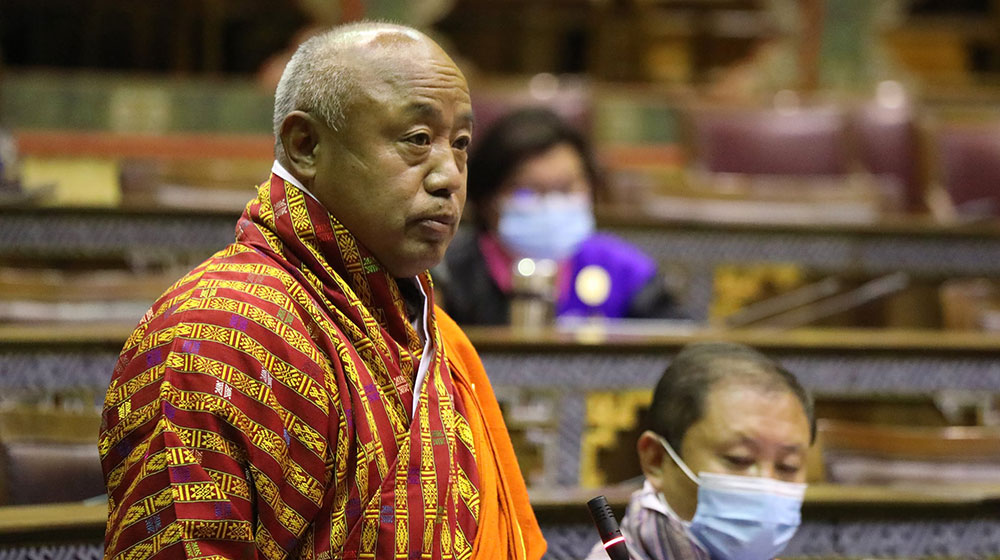Dechen Dolkar
The Ministry of Finance (MoF) will not provide financial support for the national crop and livestock insurance scheme.
The fifth session of the Third Parliament decided the government should provide adequate compensation to farmers against loss of crops to wildlife and natural disasters.
The Cabinet, during its 69th Session of Lhengye Zhungtshog held on July 28 last year, directed relevant ministries to initiate the national crop and livestock insurance scheme.
According to the Public Accounts Committee (PAC), the Ministry of Agriculture and Forests (MoAF) discussed the national crop and livestock insurance scheme with the Royal Insurance Corporation of Bhutan (RICB) and submitted a joint recommendation to the MoF. “The MoF responded indicating its inability to provide financial support owing to the current Covid-19 pandemic.”
The MoF has also pointed out that the actual amount of annual premium support for the farmers by the government has not been determined, due to the lack of adequate crop damage and livestock loss data.
Agriculture Minister Yeshey Penjor said there are two types of compensation for crop and livestock damages, which are from the endowment fund and from the Kidu office. “But the guidelines of compensation changed with every government term.”
He said that during the first government’s tenure, compensation was provided from the ministry after inspecting the damages. “During the second government’s tenure, the compensation was provided as a lump sum with Nu 300,000 to each gewog.”
Lyonpo Yeshey Penjor said that both modalities had their advantages and disadvantages. “The second government requested Office of the Gyalpoi Zimpon for direction on how the endowment fund should be used and also on crop insurance.”
Lyonpo also said that the ministry is discussing a crop insurance scheme with the RICB.
Road map for food self-sufficiency and security
According to the PAC, the MoAF developed the Renewable Natural Resources Strategy 2040 to enhance food self-sufficiency and security.
The strategy, guided by the vision of “Sustainable natural resources and self-reliant food systems contributing to inclusive socio-economic wellbeing of Bhutanese” has 114 initiatives congruent to the 11 strategies spread over the short term for five years, medium-term for 10 years, and long term for 20 years to actualize the transformation change for the RNR family.
The PAC also reported that deriving from the RNR strategy 2040, the RNR Marketing Strategy 2021 was developed to resolve all existing marketing issues and develop a clear roadmap for the marketing of RNR produce and products.
Accordingly, the RNR marketing action plan will be developed.
Lyonpo Yeshey Penjor said that for food self-sufficiency, technology is required and the ministry is preparing for that.


